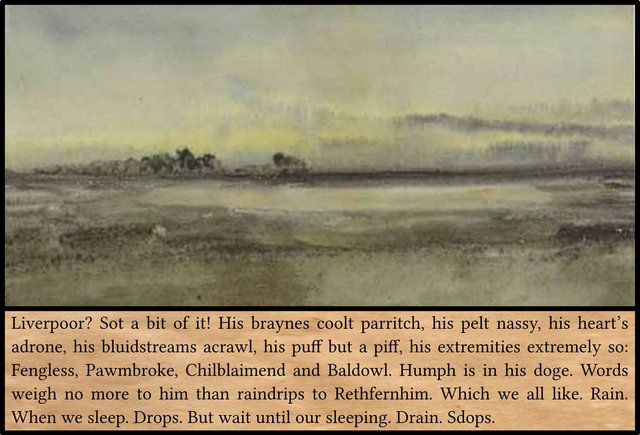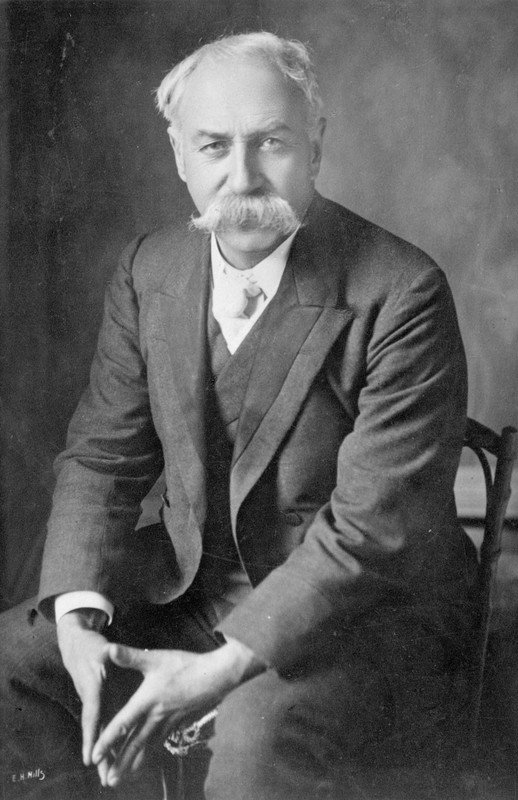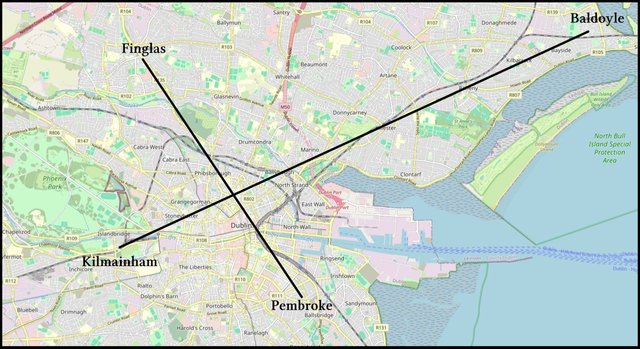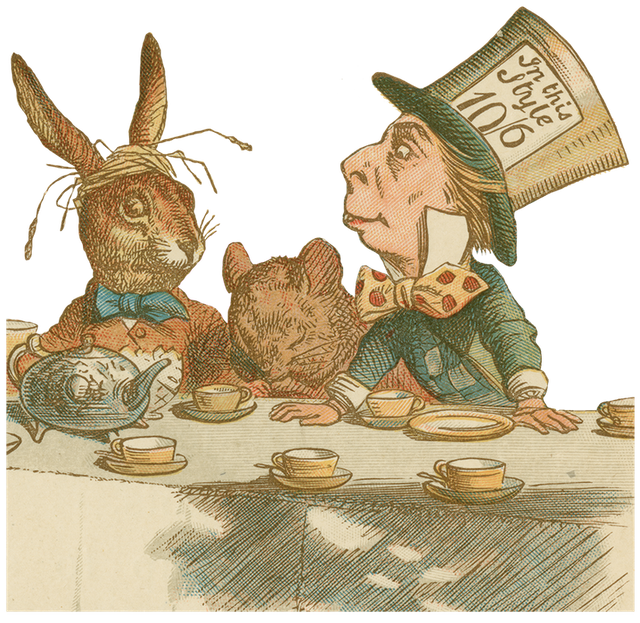Liverpoor?

The last ten pages of Chapter 3 of James Joyce’s Finnegans Wake comprise an episode known as The Battery at the Gate, in which HCE suffers a sustained assault at the hands of an outsider. The final three paragraphs can be read as a short coda to this episode. HCE’s attacker has departed, leaving his hapless victim cowering alone in his hideout. But throughout this chapter HCE has been identified with his own attacker:
A striking feature of this chapter is its tendency to let the figure of the hero and his antagonists become merged. ―Campbell & Robinson 78
From this perspective, the departure of the latter in the direction of the deaf-&-dumb institute can be interpreted as HCE’s own death. The institute represents the afterlife: the dead are deaf and dumb. HCE’s place of refuge is now his tomb. The gist of this paragraph, the last of the final three, is, as FWEET puts it:
his body hibernates―he sleeps.
In Finnegans Wake sleep and death are one and the same.
First-Draft Version
As we have seen, the final four paragraphs of this chapter were additions to the first draft, which concluded with the bullocky proceeding in the direction of the deaf-&-dumb institute. Between December 1923 and early 1927 Joyce added what would become the second and fourth of the final four paragraphs. The first draft of the latter read as follows:
Liverpoor? Not a bit of it. His brains cold porridge, his pelt nassy, his heart adrone, his bloodstream acrawl, his puff but a piff, his extremities extremely more so. Hypnos⸻Humph is in his doge. Words say no more to him than the rain. Which we like. When we sleep. Drop. ―JJDA
When an early draft of this chapter was published in the third issue of transition in June 1927, the first and third of these paragraphs had still not been added. The fourth paragraph now read:
Liverpoor? Sot a bit of it! His braynes coolt parritch, his pelt nassy, his heart’s adrone, his bluidstreams acrawl, his puff but a piff, his extremeties extremely so Humph is in his doge. Words weigh no no more to him than raindrips to Rethfernhim. Which we all like. Rain. When we sleep. Drops. But wait until our sleeping. Drain. Sdops. ―Jolas & Paul 50
The omission of a colon after extremely so was probably a typo. By the time Finnegans Wake was published in May 1939, Joyce had inserted a single phrase after this colon: Fengless, Pawmbroke, Chilblaimend and Baldowl. Otherwise the published version is identical to the version in transition.

Bad Weather
In Ireland, the weather is a favourite subject of conversation. Throughout this chapter, bad weather and low visibility have been used repeatedly as metaphors for the obscurity of the past. From a broad perspective, this chapter is a journalistic investigation into the HCE affair. But hard facts are hard to come by. Peering into the past is like peering into a fogbank. A chapter that opened with a freakfog now closes with Rain ... Drops. A few other words in this paragraph may also be construed in a meteorological sense:
-poor poor weather.
coolt cool temperatures.
Fengless Mandarin fēng [風] : wind
Chilblaimend both chilly weather and the chilblains that it causes.
raindrips raindrops dripping.
Liverpoor?
This single word is pregnant with hidden meaning. The L/R Split transforms it into Riverpool. Dublin was founded on a dark pool (Irish dubh linn) where the River Poddle flows into the River Liffey.
The English city of Liverpool, which sits on the opposite shore of the Irish Sea, has strong associations with Dublin. In the 1840s, during the Great Famine, thousands of Irish emigrants settled in Liverpool.
The word also suggests that HCE’s death has been occasioned by the damage done to his liver by his excessive consumption of alcohol. This is reinforced by the alteration of the following Not to Sot. A sot is a drunkard.
There may also be an allusion here to the Irish songsmith Percy French, who died in Formby, just outside Liverpool. His death was not alcohol-related―he died of pneumonia―which may explain why the answer to the question is Not a bit of it! He was, however, poor at the time of his death. By profession French was a civil engineer. In the 1880s he was an Inspector of Drains in County Cavan. Note that Drain is the penultimate word in this paragraph.

When French’s biographer, Bernadette Lowry, researched the relationship between him and Joyce, she was surprised to discover just how important a role he played in Finnegans Wake:
When I went about the task of including a short chapter on how Joyce used Percy French’s ballads in a general biography on the shockingly overlooked Percy French, little did I know that it would draw me into the most obscurely difficult book ever written and alter the course of my research dramatically, but a series of clues and suspicions, which would escape people without an in-depth knowledge of French, that he dominates Joyce’s final novel led me inexorably into the tortuous labyrinth of Finnegans Wake and, in the end, there were more reference than I could include but, when I stumbled upon the reference at the end of Chapter 3 to the passing of a giant at Liverpool, juxtaposed with two of Moore’s melodies, this was a Eureka moment.
French can be considered the singular Finnegan of the cosmic Finnegans of Joyce’s final novel. Since I wrote the book, I decoded another clencher in the portmanteau word in the last three lines of Finnegans Wake ‘Bussoftlhee’ which unscrambles as the ‘Buss of ethel,’ The ‘Kiss of Ethel.’ Ethel was French’s tragic first wife, so active on The Jarvey [French’s comic journal]. The word ‘ethel’ crops up in corruptions all over the Wake. ―Bernadette Lowry, The Irish Times 28 July 2022
Lowry ended up bestowing a very Wakean title on her biography: Sounds of Manymirth on the Night’s Ear Ringing: Percy French (1854-1920): His Jarvey Years and Joyce’s Haunted Inkbottle. Another Irish journalist, Frank McNally, has even gone so far as to suggest that Percy French is the real hero of Finnegans Wake:
French Connection―Frank McNally on why Percy French may be the real hero of Finnegans Wake
If the author of a new book is right, French is the “Finnegan” around which James Joyce’s last and famously unreadable novel revolves. At the very least, he is a key part of the character. ―Frank McNally, The Irish Times 21 January 2022
As McNally points out in his review of Lowry’s book, Lowry was not the first to note the prominence of Percy French in the pages of the Wake. Sixty years earlier, the literary critic Vivian Mercier had pointed out that French’s Phil the Fluter’s Ball bulks almost as large in Finnegans Wake as the ballad which gave the book its title (Mercier 209). Matthew Hodgart & Mabel Worthington, authors of Song in the Works of James Joyce, concurred:
Joyce mentions Percy French and quotes him widely: Phil the Fluter’s Ball is almost as important as the ballad about Finnegan in the Wake scenes, and Off to Philadelphia in the Morning is a recurrent theme. ―Hodgart & Worthington 14
It need hardly be remarked that Percy French also lies behind Humphrey Chimpden Earwicker’s French name Persse O’Reilly, which alludes to the French perce oreille: earwig.
If Percy French died poor near Liverpool, it is possible that Joyce’s father John Stanislaus Joyce was partly responsible. In 2021 Peter Chrisp published a list of Your Questions for James Joyce, which were submitted by subscribers to his blog From Swerve of Shore to Bend of Bay. Among these questions is the following by Bernadette Lowry (identified here by her maiden name Gorman):
What was [James Joyce’s] problem and obsession with Percy French and why did he so carefully fillet his library of all the Percy French material he manifestly consulted? Also why did he spend months in the UK in 1923 the year after [Chronicles and Poems of Percy French] were published? Another question, did he raid his father’s files on the Chapelizod distillery, carried from rented house to rented house and did he discover that it was the Chapelizod Distillery that Percy French lost his considerable savings in? In a word, did John Joyce rob Percy French? ―Bernadette Gorman (Peter Chrisp, From Swerve of Shore to Bend of Bay, 21 December 2021)
Sadly, without a time machine, these questions will probably remain unanswered.

Dead or Asleep?
Does HCE die at the end of this chapter, or merely fall asleep? In the dreamworld of Finnegans Wake, there is not really any difference between the two, but the evidence is that Joyce was thinking primarily of sleep. Much of this brief paragraph can be traced to a note he made in one of the Finnegans Wake notebooks, VI.B.17. This note lists six of the physiological effects of sleep:
Sleep―brain bloodless
skin moist
heart slow
blood pressure drops
respirates ½ normal
chest limbs bigger
―VI.B.17:23b
Compare the six items in this list with the following phrases from this paragraph:
His braynes coolt parritch ...
his pelt nassy ...
his heart’s adrone ...
his bluidstreams acrawl ...
his puff but a piff ...
his extremities extremely so ...
What was Joyce’s source for this note? The article on Sleep in the Encyclopædia Britannica (11th Edition) does mention the comparatively bloodless condition of the brain, as blood is diverted to other organs during sleep (Chisholm 25:239), but there is nothing in this article about moist skin, a slowing of the heart rate, a drop in blood pressure, a halving of the rate of respiration, or the growth of the chest and limbs.
- His braynes coolt parritch The first draft―His brains cold porridge―recalls the proverb Keep your breath to cool your porridge, which means more or less the same thing as Let sleeping dogs lie (see below): it would be better not to say anything. Do the alterations in spelling signify anything, or was Joyce just disguising the original version? Is there an allusion to Old Parr, the incontinent sesquicentenarian referred to on the very first page of Finnegans Wake? Some scholars have observed allusions to animals: the braying of an ass, the cooing of a pigeon, and the young salmon or parr―not to mention HCE’s itches (Hamada 155).
By describing HCE’s brains as cold porridge the narrator is surely letting us know that he is dead.
his pelt nassy nasty as well as the German nass : wet, moist.
his heart’s adrone the slowing of the heart rate during sleep suggests that the heart is a drone―an idler. Or perhaps the slow heart rate sounds like a deep drone in music.
his bluidstreams acrawl Scots bluid : blood. This describes the drop in blood pressure during sleep.
his puff but a piff an obvious description of the sleep-induced drop in respiration. FWEET suggests an allusion to the anti-Catholic song Piff Paff in Giacomo Meyerbeer’s opera Les Huguenots. German piff paff : bang bang.
his extremities extremely so this refers to the increase in the size of the chest and limbs during sleep―wherever Joyce found this idea. The only alteration he made to the first draft was to change extremities to extremeties under the influence of the following extremely. In The Restored Finnegans Wake, Danis Rose & John O’Hanlon have reinstated the original version. Why they did this I cannot say. Note that in extremis means at the point of death, confirming once again the close connection between sleep and death in Finnegans Wake.
The Four Old Men, X
The only significant change Joyce made to this paragraph between 1927 and 1939 was the addition of a single phrase:
Fengless, Pawmbroke, Chilblaimend and Baldowl.
These words refer to four localities in Dublin:
- Finglas, a village or suburb in the NW of the city.
- Pembroke, a former township in the SE.
- Kilmainham, a village or suburb in the SW.
- Baldoyle, a village or suburb in the NE.
Drawing a line from the first to the second and from the third to the fourth creates an X, Joyce’s siglum for the Four Old Men. The fifth locality, Rethfernhim, or Rathfarnham, represents Johnny MacDougal’s donkey, bringing up the rear as usual (German fern : distant). The Four, in their spatial aspect, often stand for the four cardinal directions. In the opening chapter of the book, HCE asleep in bed was compared to Finn MacCool interred in the landscape of Dublin, with his head in the east and his feet in the west. I presume the idea of the chest and limbs becoming bigger when one sleeps reminded Joyce of this giant interred.

Loose Ends
Finally, before taking our leave of this paragraph, let’s tie up some loose ends.
- Humph is in his doge. The original version was Hypnos⸻Humph is in his doge. Hypnos is the Ancient Greek ὕπνος [hupnos] : sleep. This confirms that doge can be glossed as doze. HCE has fallen asleep. In Irish medieval annals, the death of a monk was often recorded as: X fell asleep.
Between the 7th and 18th centuries, the ruler of the Republic of Venice was known as the doge, a title that meant leader, from the Latin dux. Noting that is in his is a literal translation of the Irish phrase tá sé ina, meaning he is, we are being told that HCE is the doge. But why? Has the persistent rain throughout this chapter finally conjured up the watery streets of Venice?
A note in one of the Finnegans Wake notebooks adds another allusion:
Let lying doges / sleep ―VI.B.3:79d
Let sleeping dogs lie is a proverb, meaning it is best to leave things as they are and not be opening up old wounds. In other words, it would be better not to pry any further into the HCE Affair.
doge may also be a contraction of dotage: HCE is doting, or in his dotage. Jonathan Swift suffered from mental illness at the end of his life. Fengless can also be glossed as fangless, implying that HCE has lost his teeth, Baldowl implies that he has also lost his hair and is now as bald as an owl. Pawmbroke tells us that he is both broke (-poor) and broken down. He has also been pawned off.
Words weigh no more to him Not only does this imply that HCE is now deaf to the world, it also echoes the phrases about letting sleeping dogs lie and saving your breath to cool your porridge. To weigh one’s words means to consider carefully before speaking.
Which we all like John Gordon suggests that this refers to the pleasant sound of raindrops on the roof while one is comfortably tucked up in bed (Gordon 74.18–9).
But wait until our sleeping. Drain. Sdops In addition to the allusion to Percy French as Inspector of Drains, there may also be a reference to a sleeper train stopping. In dreams, train journeys are often interpreted as metaphors for death and one’s passage to the afterlife.
The closing words of this chapter will be echoed on two future occasions. Both seem to be referring to the act of falling asleep. First, near the beginning of Chapter II.2 Night Lessons:
Which we all pass. Pons. In our snoo. Znore. While we hitherward the thither. Schein. Shore. ―RFW 209.01–02
Second, in the final chapter:
Whichus all claims. Clean. Whenatscleeps. Close. And the mannormillor clipper-clappers. Noxt. Dose. ―RFW 480.22–24

And that’s as good a place as any to beach the bark of our tale.
References
- Joseph Campbell, Henry Morton Robinson, A Skeleton Key to Finnegans Wake, Harcourt, Brace and Company, New York (1944)
- Tatsuo Hamada, How to Read Finnegans Wake, Edited by C George Sandulescu & Lidia Vianu, Contemporary Literature Press, Bucharest (2014)
- David Hayman, A First-Draft Version of Finnegans Wake, University of Texas Press, Austin, Texas (1963)
- Matthew J C Hodgart & Mabel Worthington, Song in the Works of James Joyce, Temple University Publications, Columbia University Press, New York (1959)
- Eugene Jolas & Elliot Paul (editors), transition, Number 3, Shakespeare & Co, Paris (1927)
- James Joyce, Finnegans Wake, The Viking Press, New York (1958, 1966)
- James Joyce, James Joyce: The Complete Works, Pynch (editor), Online (2013)
- Bernadette Lowry, Sounds of Manymirth on the Night’s Ear Ringing: Percy French (1854-1920) His Jarvey Years and Joyce’s Haunted Inkbottle, Carmen Eblana Productions, Dublin (2022)
- Frank McNally, __, The Irish Times 21 January 2022, Dublin (2022)
- Vivian Mercier, Parody: James Joyce and an Irish Tradition, Studies: An Irish Quarterly Review, Volume 45, Number 178, Pages 194–218, Messenger Publications, Dublin (1956)
- Vivian Mercier, The Irish Comic Tradition, Oxford, At the Clarendon Press (1962)
- Danis Rose, John O’Hanlon, The Restored Finnegans Wake, Penguin Classics, London (2012)
Image Credits
- Landscape after Rain: Percy French (artist), Private Collection, Public Domain
- Liverpool (c 1920): General Photographic Agency, Public Domain
- Percy French: E H Mills (photographer), Public Domain
- Mueelrea House, Formby: © Formby Civic Society (photographers), Fair Use
- Four Districts of Dublin: © OpenStreetMap Contributors, Creative Commons Attribution-ShareAlike 2.0 License
- The Sleepy Dormouse: John Tenniel (illustrator), E Gertrude Thomson (colorist), Lewis Carroll, The Nursery Alice, Macmillan, London (1889), Public Domain
Useful Resources
- FWEET
- Jorn Barger: Robotwisdom
- Joyce Tools
- The James Joyce Scholars’ Collection
- FinnegansWiki
- James Joyce Digital Archive
- From Swerve of Shore to Bend of Bay
- John Gordon’s Finnegans Wake Blog
